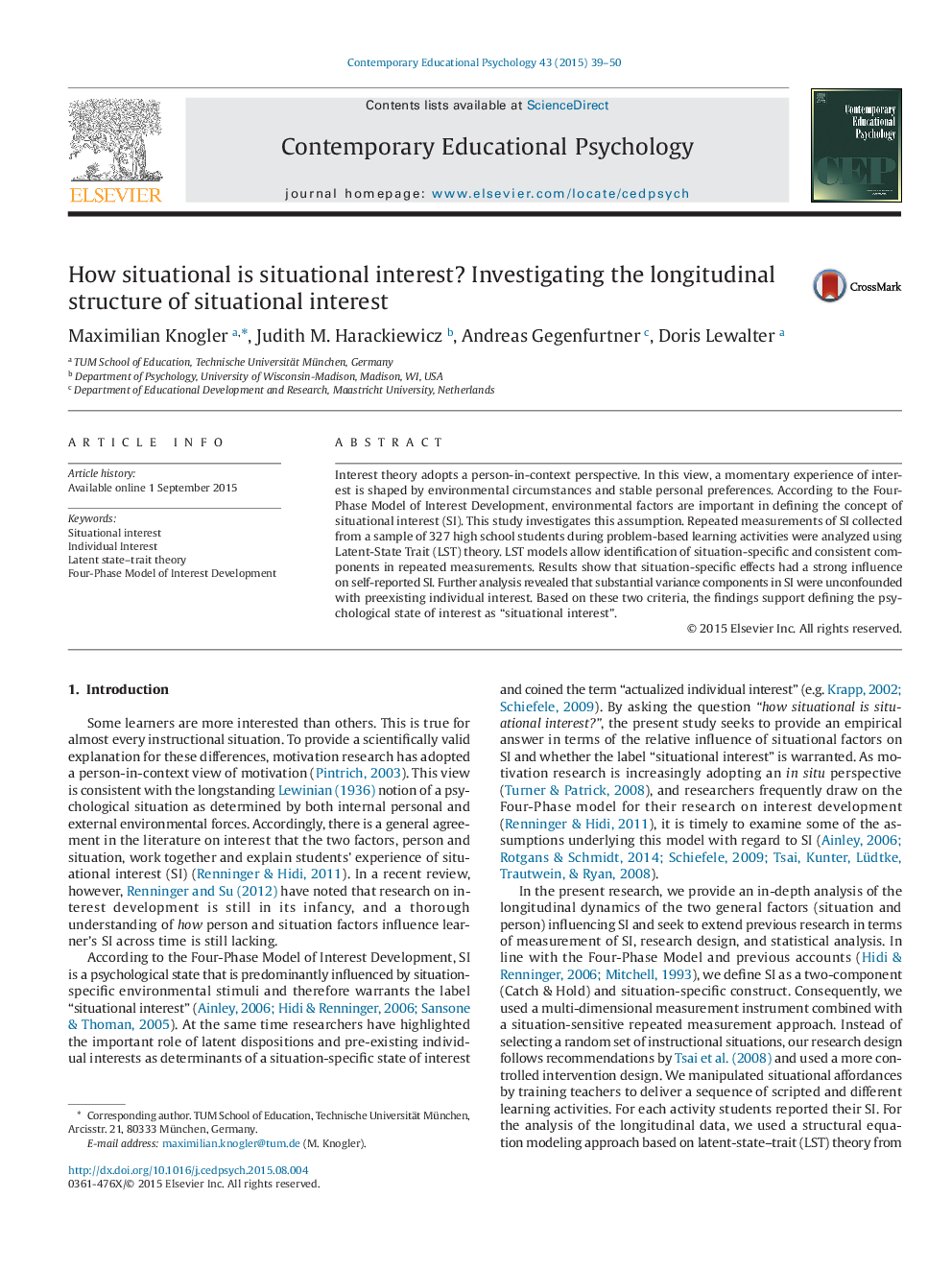| Article ID | Journal | Published Year | Pages | File Type |
|---|---|---|---|---|
| 352563 | Contemporary Educational Psychology | 2015 | 12 Pages |
•We measure situational interest repeatedly in different situations.•We analyze data with latent state–trait analysis.•We find high levels of situation-specificity in the measures.•We find variance components unrelated to individual interest.•Situational interest is confirmed as a situational construct.
Interest theory adopts a person-in-context perspective. In this view, a momentary experience of interest is shaped by environmental circumstances and stable personal preferences. According to the Four-Phase Model of Interest Development, environmental factors are important in defining the concept of situational interest (SI). This study investigates this assumption. Repeated measurements of SI collected from a sample of 327 high school students during problem-based learning activities were analyzed using Latent-State Trait (LST) theory. LST models allow identification of situation-specific and consistent components in repeated measurements. Results show that situation-specific effects had a strong influence on self-reported SI. Further analysis revealed that substantial variance components in SI were unconfounded with preexisting individual interest. Based on these two criteria, the findings support defining the psychological state of interest as “situational interest”.
